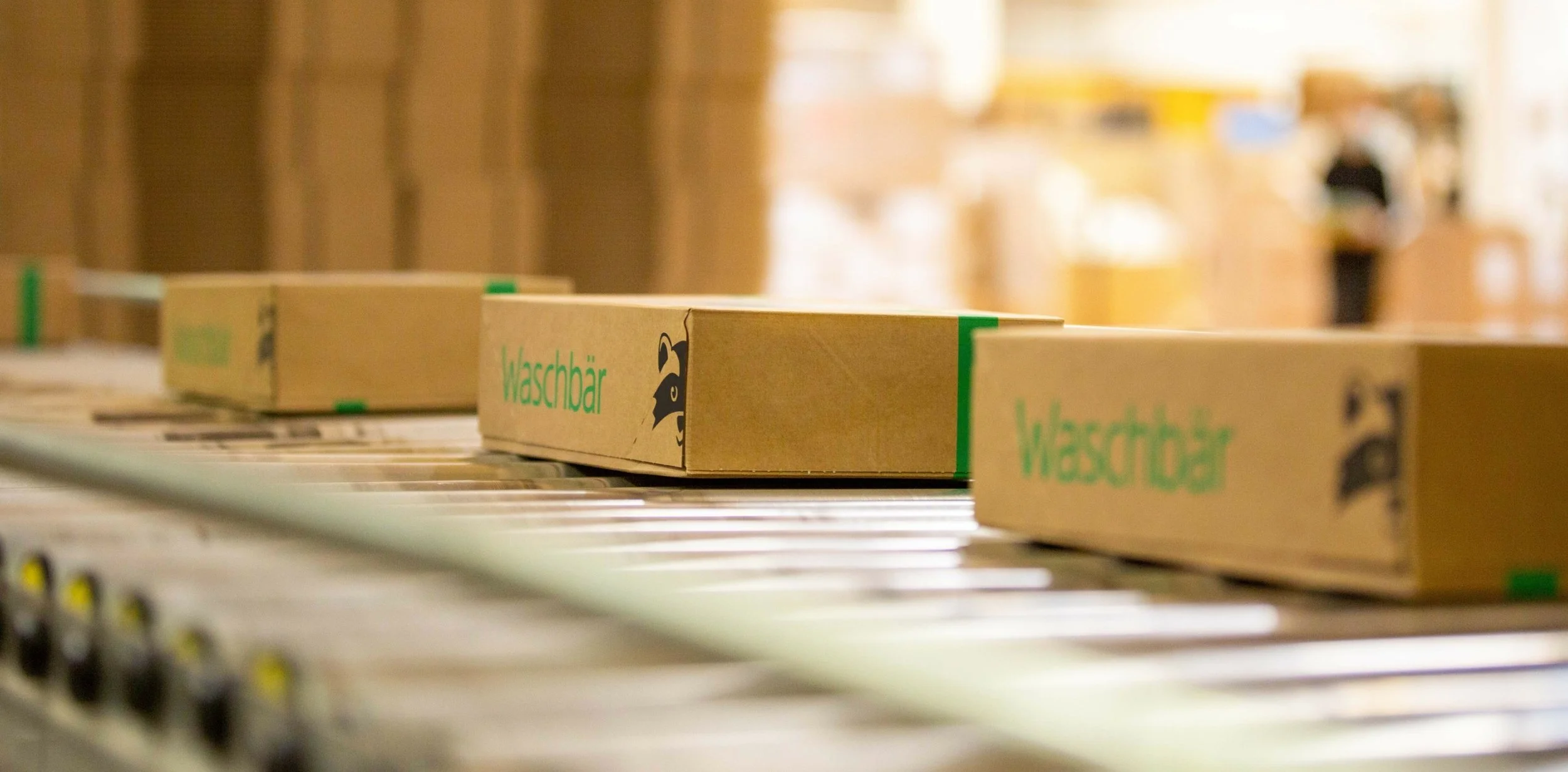Waschbär
Must knows
Mail order company – 63 million turnover - Freiburg – 1987
Steward-ownership as an alternative way of succession
Challenge: succession with mission protection
Founded in 1987, Waschbär has been at the forefront of the sustainable consumer product trend in Germany. As the leading environmental mail-order company in Europe, Waschbär’s mission is to protect our planet through the direct sale of sustainable and ecological products. The wide range of household goods and high-quality clothing seeks to inspire people to make their everyday life ecologically sustainable and to protect our planet and its diversity with everyday actions.
Pioneering sustainable mail order
In 1987, Waschbär launched its first collection of eco-friendly cleaning products. With the combination of commercial mail order and ecological products, Waschbär’s founder, Leo Pröstler paved the way to raise ecological awareness with everyday products and to make them widely accessible. In the mid-1990s, Waschbär’s product range was expanded to include sustainably and fairly produced clothing. Its catalog, initially 16 pages long, expanded to 400 pages and presented more than 4300 products.
"I wanted a succession solution that would ensure the business remained in the hands of the most qualified, mission-aligned stewards."
Ernst Schütz, former founder and CEO of Waschbär
When Waschbär struggled financially in the early 2000s, then-CEO Ernst Schütz took over the majority of the company’s shares as part of a management buy-out. With the aim to protect its mission, he restructured the company and developed it into a profitable and sustainable business. To protect Waschbär’s mission and independence in the long-term and after his retirement, Ernst Schütz sought an unconventional succession solution: in 2017, he transitioned the company to a Golden Share steward-ownership structure. In return for giving up all his dividend rights, he would receive a pension from the company. This model ensured that the company could never be sold, and would instead remain in the hands of stewards who were directly involved in the business’ operations.
"Steward-ownership is the perfect match for Waschbär: our actions are not bound to our shareholders and profit-maximization, but only to our stakeholders. This way, we can focus on Waschbär’s mission and purpose: to rethink the economy together with our employees, customers, and partners and shape the future together."
Katharina Hupfer, CEO and steward of Waschbär
The generation change at Waschbär offered an opportunity for the new stewards of the company, Katharina Hupfer, and Matthias Wehrle, to restructure the company’s governance in line with Waschbär’s values and mission. The two managing directors wanted steward-ownership to go beyond the external company structure and are seeking to incorporate its purpose and meaning into the company’s corporate governance, philosophy, and culture. Their integrative approach includes the strengthening of empowering organizational structure for employees and constructing processes to focus on their customers and consumer needs. The transformation into a steward-owned company thus takes place not only structurally, but also culturally within the company.
Read more about the case of Waschbär,
| The information on this page is rooted in the knowledge of Purpose Economy |

